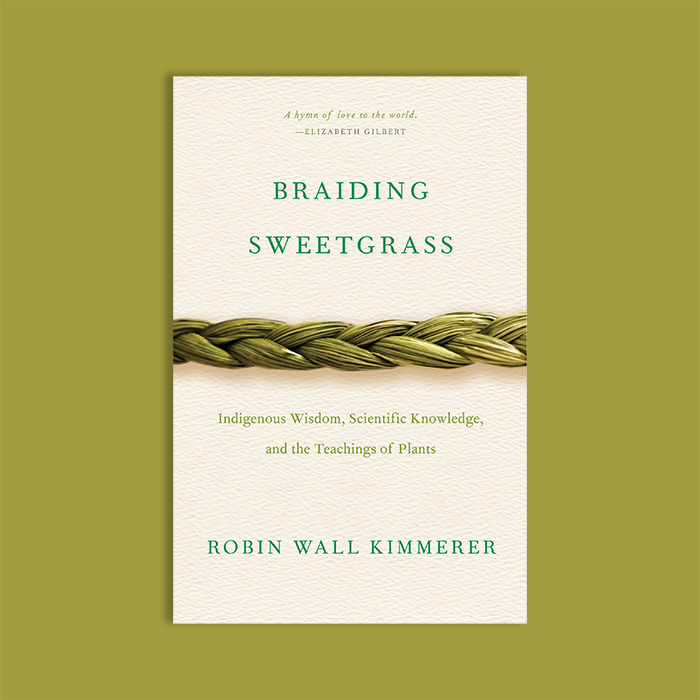In a culture of gratitude, everyone knows that gifts will follow the circle of reciprocity and flow back to you again. This time you give and next time you receive. Both the honor of giving and the humility of receiving are necessary halves of the circle. …
The earth gives away for free the power of wind and sun and water, but instead we break open the earth to take fossil fuels. Had we taken only that which is given to us, had we reciprocated the gift, we would not have to fear our own atmosphere today.
Robin Wall Kimmerer, Braiding Sweetgrass

Robin Wall Kimmerer’s book, Braiding Sweetgrass, is a magical symbiosis of Western scientific thinking and traditional ecological knowledge. Kimmerer is a professor of botany and a member of the Citizen Potawatomi Nation. Braiding Sweetgrass is an ode to the concept of reciprocity – I receive a generous gift; I am grateful; I give a gift in return.
As children of traditional Western thought and Judeo-Christian belief, it is hard to see how deeply rooted we are to the idea of human life as a struggle against a hostile environment; that we were created to dominate our world and take what we need. The concept of stewardship comes from that notion that we are the caretakers of everything God made, and therefore (and this is the giant leap of human audacity) the owners – that all of Nature is a gift given to us by God for us to use and manage. And it comes directly from Genesis 1:26:
And God said, Let us make man in our image, after our likeness: and let them have dominion over the fish of the sea, and over the fowl of the air, and over the cattle, and over all the earth, and over every creeping thing that creepeth upon the earth.
Because of the difficult roots of the word stewardship, I prefer to name my testimony Unity with the Earth; unity implies that our relationship with Nature is on an equal footing; it implies a mutual and reciprocal relationship.
When we think of ourselves in a reciprocal relationship with nature, we can begin to consider how best to return the gifts we receive: It could be a direct response, like planting native flowers to help feed the birds, or offering a prayer of thanksgiving, or an indirect gift, like donating to a land trust, or advocating for policy changes.
When we nurture a reciprocal relationship with Nature, we might also accept that ecosystems have spirits of their own, and that Nature is capable of receiving people’s love and loving people back.
The moral covenant of reciprocity calls us to honor our responsibilities for all that we have been given, for all that we have taken. It’s our turn, now long overdue. Let us hold a giveaway for Mother Earth, spread our blankets out for her and pile them high with gifts of our own making. Imagine the books, the paintings, the poems, the clever machines, the compassionate acts, the transcendent ideas, the perfect tools. The fierce defense of all that has been given. Gifts of mind, hands, heart, voice, and vision all offered up on behalf of the earth. Whatever our gift, we are called to give it and to dance for the renewal of the world. In return for the privilege of breath.
Robin Wall Kimmerer, Braiding Sweetgrass


